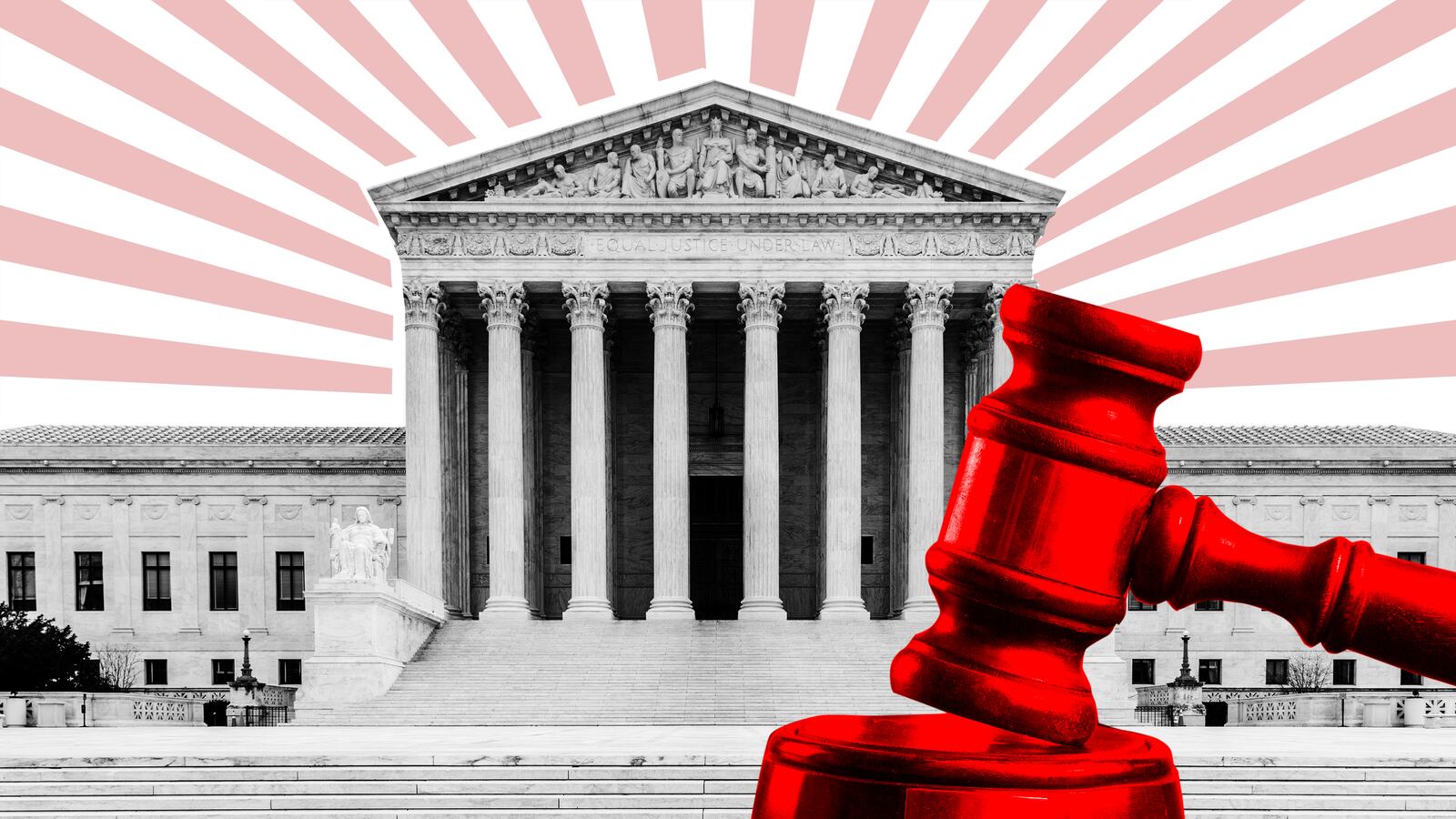After a relatively calm spring term, the Supreme Court’s fall term, beginning Monday, will cover some of the most controversial issues in American public life: LGBTQ equality, gun rights, abortion, and Donald Trump.
On Tuesday, the second day of the term, the court will hear oral arguments in three cases about whether gay and trans people are covered by federal anti-discrimination law—specifically, Title VII’s ban on discrimination based on sex.
The legal arguments are somewhat subtle (is discrimination based on sexual orientation or gender identity really a form of discrimination based on sex?) but LGBTQ advocates are already calling it the most important Supreme Court case for queer people since same-sex marriage was found to be a constitutional right in 2015.
Indeed, as with past LGBTQ cases, the cases’ symbolic value may be greater than their actual legal impact. If the court finds against the plaintiffs—as is likely, given the court’s conservative majority—it will be widely understood as legalizing “firing someone because they are gay or trans.” (In fact, gay and trans people can already be fired because of their sexual orientation or gender identity in 28 states, and this case would not affect the 22 other ones.) That will have societal impact far greater than any actual legal holding.
In November, the court will hear three challenges to the Trump administration’s suspension of DACA, the “Deferred Action for Childhood Arrivals” policy that postpones enforcement actions against so-called “Dreamers,” undocumented immigrants brought to the United States as children.
Unlike the LGBTQ cases, the DACA challenges will immediately impact thousands of undocumented people who voluntarily turned their information over to the government in exchange for protection, and are now having that information used against them by a nationalist regime eager to deport them. The Supreme Court’s review, however, will largely focus on whether the DACA program, which was an Obama-era agency prioritization decision rather than a formal rule, is even subject to judicial review.
Perhaps the most contentious case of the term will be heard in December, when the court takes up its first major Second Amendment case in 11 years. At issue is a New York City law that bans transporting a handgun to a shooting range outside the city. The larger issue is that the case will be the first time the newly conservative court (with Justices Gorsuch and Kavanaugh on board) will address the extent of the private right to bear arms that the court discovered (or invented) in the 2008 case of D.C. v. Heller.
At the eleventh hour—perhaps anticipating that the court will expand its interpretation of the Second Amendment—the city and state of New York have effectively repealed this law, potentially rendering the case moot. As of now, however, the case is still on track, meaning that Trump’s “NRA people” could be in for some very good news in the new year.
Lastly, just last week, the court agreed to hear a challenge to Louisiana’s new requirements for the state’s abortion clinics, which would cause many of them to close. The case is a near-copy of a 2016 case, but there is one crucial difference: Justice Brett Kavanaugh.
Justice Kavanaugh’s predecessor, Justice Anthony Kennedy, was the swing vote in 2016, and Justice Kavanaugh has sharply condemned Roe in public statements. This probably means that the 2016 case will be overturned and a series of so-called TRAP (Targeted Regulation of Abortion Provider) laws will be quickly passed across the country.
More broadly, that case will likely be the first of several abortion-related cases to be heard this term, with new laws having practically banned abortion in Alabama, Missouri, Kentucky, Ohio, Mississippi, and Georgia.
The new crop of laws are in clear violation of existing Supreme Court cases, which is precisely the point: they are meant to afford the new court an opportunity to revisit Planned Parenthood v. Casey, which allowed restrictions on abortions only if they do not place an “undue burden” on women seeking them, and Roe v. Wade itself.
Because they violate existing precedent, the new laws have all been placed on hold for now (including, in Missouri’s case, with Chief Justice Roberts’ agreement), but those delays are only temporary. Given Justice Kavanaugh’s place on the court, it seems certain that the right to control one’s own uterus will be sharply curtailed in the next year; the only questions are when and by how much.
In addition to the cases already scheduled for review, several high-profile cases are wending their way up to the Supreme Court, and are likely to be accepted for review. These include a cluster of challenges to Trump’s border wall, and the highly dubious declaration of emergency that grabbed funds to pay for it even though Congress refused to do so. It’s likely that one or more of these challenges will reach the court within the next six months.
Finally, it’s quite possible that issues related to the Trump impeachment inquiry will reach the Supreme Court on an expedited basis. Already, Trump administration officials have raised questions about whether some of the documents at the center of that inquiry are subject to executive privilege, and new disclosures have revealed that the administration is shielding still more documents from public view.
There are even legal processes still ongoing regarding the last few administration scandals—the numerous lies told under oath by administration officials regarding the U.S. Census, the Mueller investigation, and even Hurricane Dorian. The most controversial cases of the year may not have even been filed yet.






